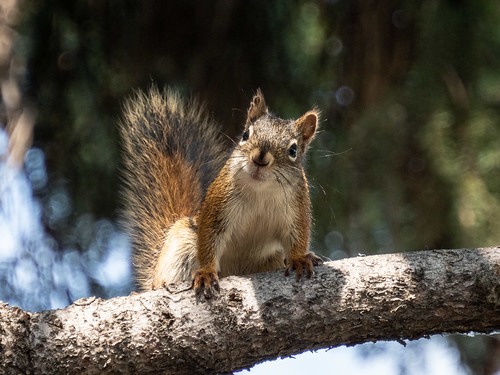Saskatoon Nature Society is hosting a fall bird count on Sept. 11. Register by Sept. 10 if you’re interested in participating.
Nature Regina is hosting a native plant sale from 9 am-1 pm, Sept. 11.
The City of Prince Albert is hosting a household hazardous waste day from 9 am-4 pm, Sept. 11.
City of Saskatoon residents can dispose of household hazardous waste from 9 am to 3:30 pm, Sept. 12.
There will be an online federal election forum on climate, energy, and environment with Saskatoon candidates at 7 pm, Sept. 13.
Nature Saskatchewan is hosting an online presentation on the migration and winter habitats of burrowing owls and monarch butterflies at 7 pm, Sept. 14. Register to participate.
Looking Ahead
Climate Reality Leadership Corps is offering online training from Oct. 18-24.
Full event details are available on the EcoFriendly Sask Calendar
The City of Saskatoon is now offering a home energy loan program (HELP) to help residents make their homes more energy efficient. “HELP loans are repaid through property taxes over five-, 10-, or 20-year terms, and remain attached to the property. If someone moves before the loan is repaid, the new homeowner will take on loan repayment.” [CBC Saskatoon]
Energy-efficient buildings in combination with improved indoor air quality could prevent 2,900 to 5,100 premature deaths annually. [Anthropocene]
PFAS are used to make products water-, stain-, or heat-resistant and can be found in thousands of everyday consumer products, such as stain guards, carpeting, floor wax, and non-stick cookware. They are linked to various serious health problems and significantly contaminate indoor air. [The Guardian]
An ice box demonstration highlights the effectiveness of passive house design for providing more comfortable homes with lower costs. [Inhabitat]
“So many people think about species in terms of how close to endangerment or extinction they are, but actually, what we want to do is recover species.” The goal should be measuring what we want to achieve as well as what we want to avoid. [Yale Environment 360]
Wanted – conservation champions for rodents, evolutionary marvels that have adapted to almost every region on earth, serving as food for larger animals while their eating habits disperse seeds, pollinate plants, and recycle soil nutrients. [The Revelator]
Making a Difference
Don Kowalski of Griffin, SK, has donated 800 acres to the Saskatchewan Wildlife Federation’s Habitat Trust Program. The land will be managed as a wildlife sanctuary and vehicles aren’t allowed. [Discover Weyburn]
Climate cafés come in all shapes and sizes, providing an opportunity to support people as they acknowledge climate change exists and manage their feelings about it. [The Guardian]
EcoFriendly Sask supports Saskatchewan environmental initiatives through an online publication, an events calendar, small grants, and the Nature Companion website/app.
You can follow EcoFriendly Sask by liking us on Facebook, following us on Twitter, or subscribing by email (top right corner).


